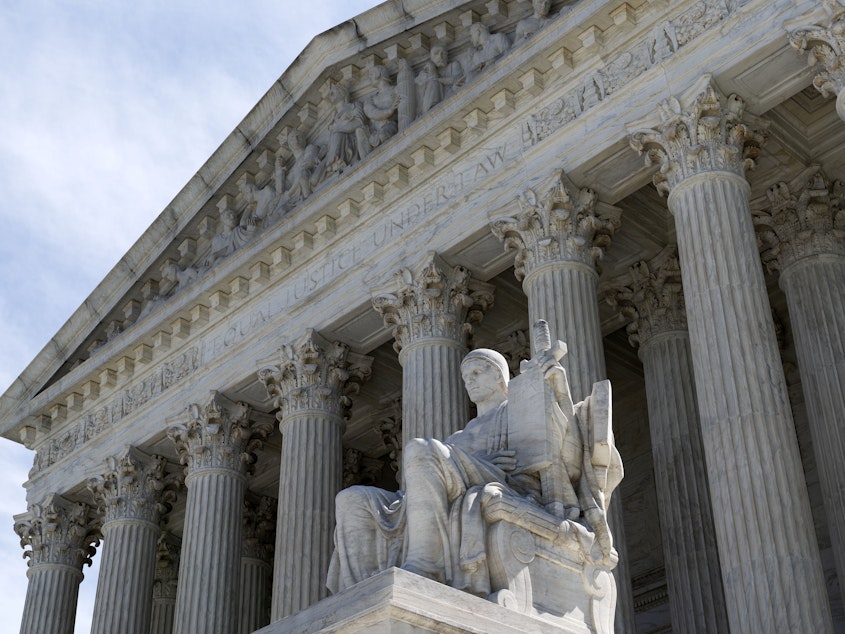On Abortion, Mississippi Swings For The Fences, Asks The Supreme Court To Reverse Roe

The battle is now joined at the U.S. Supreme Court. This week the state of Mississippi formally asked the high court to reverse its landmark 1973 abortion decision, Roe v. Wade, prompting abortion rights defenders to say, in effect, "I told you so."
In May the justices agreed to consider whether state laws that ban pre-viability abortions are unconstitutional. The test case was brought by Mississippi, which has a state law banning abortions after 15 weeks of pregnancy. Like laws in a dozen other states, this one was struck down by the lower courts because it conflicts with the Supreme Court's decision in Roe v. Wade and subsequent high court decisions over the years.
Mississippi, in its original appeal to the Supreme Court last year, argued that its law complied with existing precedent and it said that the court should only overturn Roe if it concluded there was no other way to uphold the state law.
But this week, the state reframed its argument, abandoning its earlier and narrower attack, to take direct aim at Roe and its holding that women have a constitutional right to terminate a pregnancy prior to the fetus being able to survive outside the womb.
Roe and its subsequent decisions are "egregiously wrong," the state contended. "the conclusion that abortion is a constitutional right has no basis in text, structure, history or tradition."
Sponsored
Abortion rights defenders promptly seized on the state's brief, noting that until now Mississippi had portrayed its appeal as far more limited.
"Mississippi has said the quiet part out loud. The purpose of its blatantly unconstitutional abortion ban is to have the Supreme Court overrule 50 years of precedent and allow states to ban abortions," said Alexis McGill Johnson, president of the Planned Parenthood Action Fund. This is not what the American people — 80% of whom support safe, legal abortion — want, and it would deny essential health care primarily to people of color, LGBTQ+ people, and people with low incomes. Planned Parenthood will continue to do all we can to fight back and protect access to reproductive freedom for all." [Copyright 2021 NPR]



